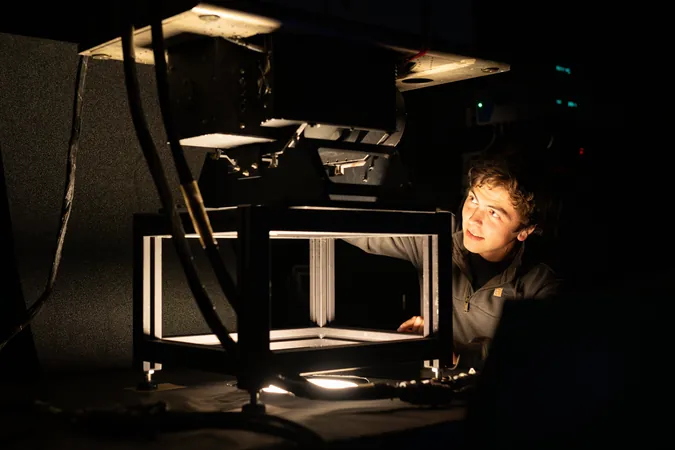
Revolutionary AI Tool Analyzes Selfies to Predict Biological Age and Cancer Survival
2025-05-11
Author: Sarah
A Game-Changer for Medical Assessments
Doctors typically rely on the "eyeball test"—a quick visual judgment of a patient's age—when making important medical choices. Now, this intuitive method is set to receive a high-tech upgrade.
Introducing FaceAge, a groundbreaking deep learning algorithm detailed in *The Lancet Digital Health*. This innovative tool analyzes a simple selfie to provide a more precise measurement of a person's biological age, surpassing the traditional birth date.
Transforming Cancer Care with Facial Analysis
FaceAge has been trained on tens of thousands of images and discovered that cancer patients appear, on average, five years older biologically than their healthy counterparts. This insight can significantly influence treatment decisions—determining whether a patient can endure aggressive therapies or if a gentler approach is preferable.
Raymond Mak, an oncologist at Mass Brigham Health and co-senior author of the study, stated, "FaceAge could serve as a biomarker in cancer care, guiding difficult treatment choices based on biological age rather than chronological age." Imagine two patients: a lively 75-year-old with a biological age of 65, and a frail 60-year-old deemed biologically 70—appropriate treatments can vastly differ based on this information.
A Closer Look at Aging
Research shows that aging rates can vary widely due to genetics, lifestyle choices, and stress. While expensive genetic tests can indicate how DNA evolves over time, FaceAge provides a window into biological aging simply through a selfie.
The model was trained on 58,851 images of healthy adults over the age of 60 and tested among 6,196 cancer patients in the U.S. and the Netherlands. Before starting radiotherapy, these patients exhibited an average biological age nearly five years older than their actual age.
Boosting Diagnostic Accuracy
Higher FaceAge scores correlate strongly with poorer survival rates, independent of age, sex, or tumor type. The severity of risk increases notably for those whose biological age exceeds 85. Surprisingly, FaceAge analyzes aging factors differently from human judgment, placing less emphasis on gray hair and more on subtle facial muscle changes.
In tests, eight doctors evaluating photos of terminal cancer patients struggled to predict survival accurately. However, when using FaceAge data, their success rates improved dramatically.
Ethics and Bias Considerations
While AI tools often face scrutiny for potential racial biases, preliminary assessments show FaceAge has no significant racial bias. Researchers are developing a second-generation model to expand its accuracy further, considering how cosmetics or lighting might affect results.
However, ethical concerns loom large. The ability to assess biological age through a selfie raises questions about its potential misuse in insurance or employment contexts. Hugo Aerts, a co-lead of the study, emphasized the importance of ensuring these technologies benefit patients.
Future Prospects of FaceAge
The researchers plan to launch a public portal where individuals can upload their selfies for research purposes, aiming to validate the algorithm further. Soon, commercial applications tailored for clinicians may emerge, following extensive validation.
As this technology evolves, it brings with it the possibility of personal revelations about aging, sparking both positive lifestyle changes and potential anxiety.



 Brasil (PT)
Brasil (PT)
 Canada (EN)
Canada (EN)
 Chile (ES)
Chile (ES)
 Česko (CS)
Česko (CS)
 대한민국 (KO)
대한민국 (KO)
 España (ES)
España (ES)
 France (FR)
France (FR)
 Hong Kong (EN)
Hong Kong (EN)
 Italia (IT)
Italia (IT)
 日本 (JA)
日本 (JA)
 Magyarország (HU)
Magyarország (HU)
 Norge (NO)
Norge (NO)
 Polska (PL)
Polska (PL)
 Schweiz (DE)
Schweiz (DE)
 Singapore (EN)
Singapore (EN)
 Sverige (SV)
Sverige (SV)
 Suomi (FI)
Suomi (FI)
 Türkiye (TR)
Türkiye (TR)
 الإمارات العربية المتحدة (AR)
الإمارات العربية المتحدة (AR)